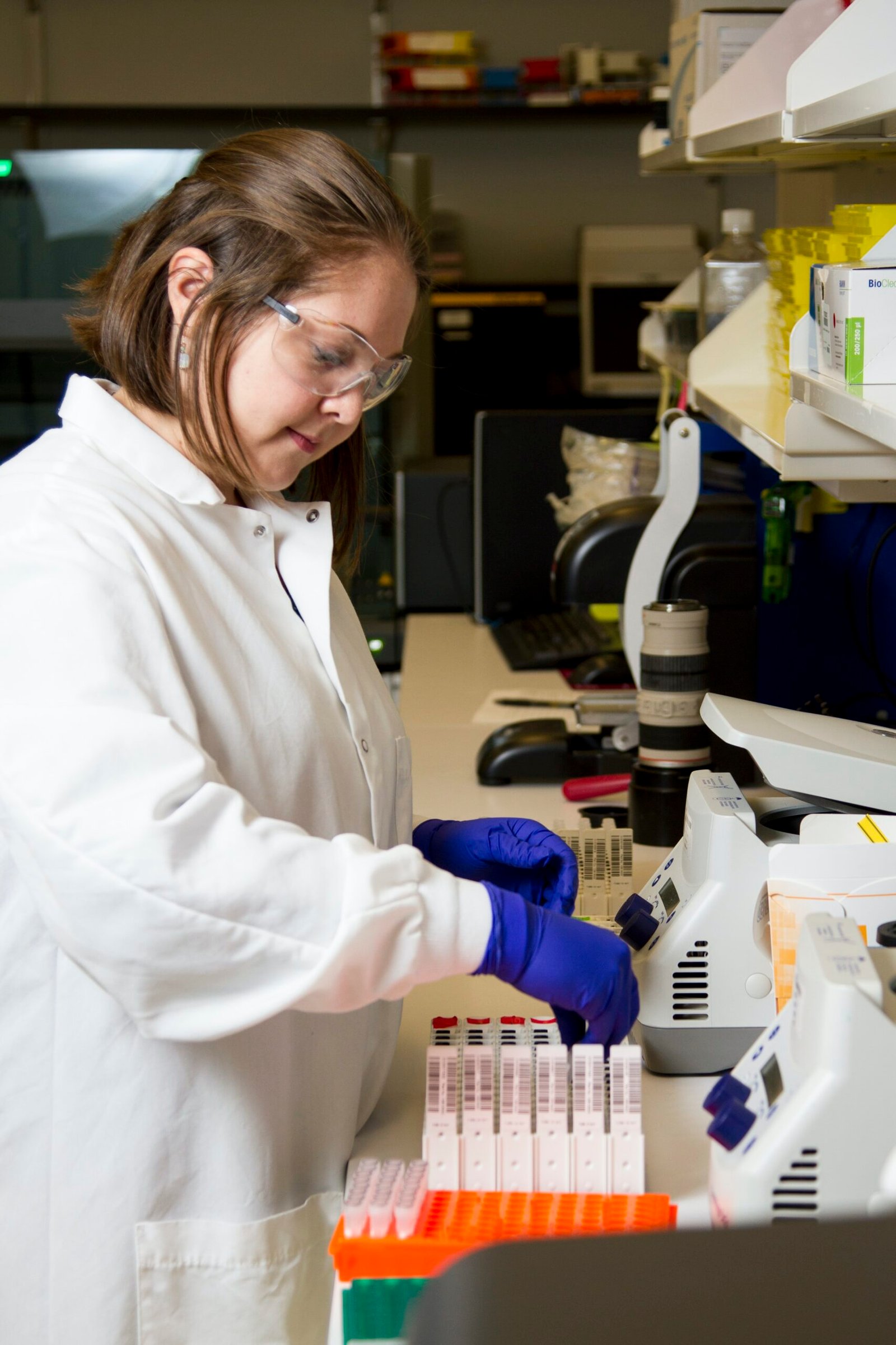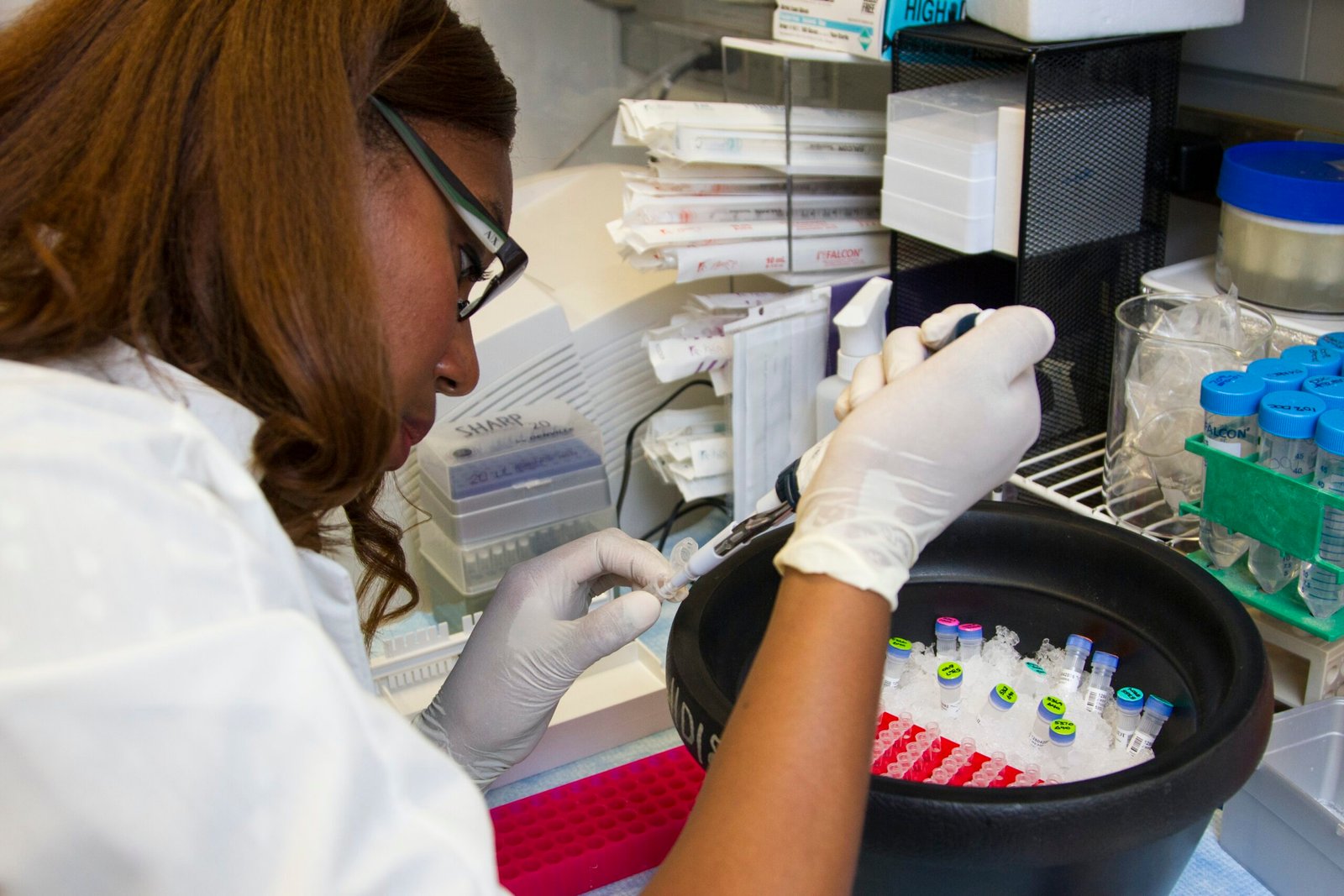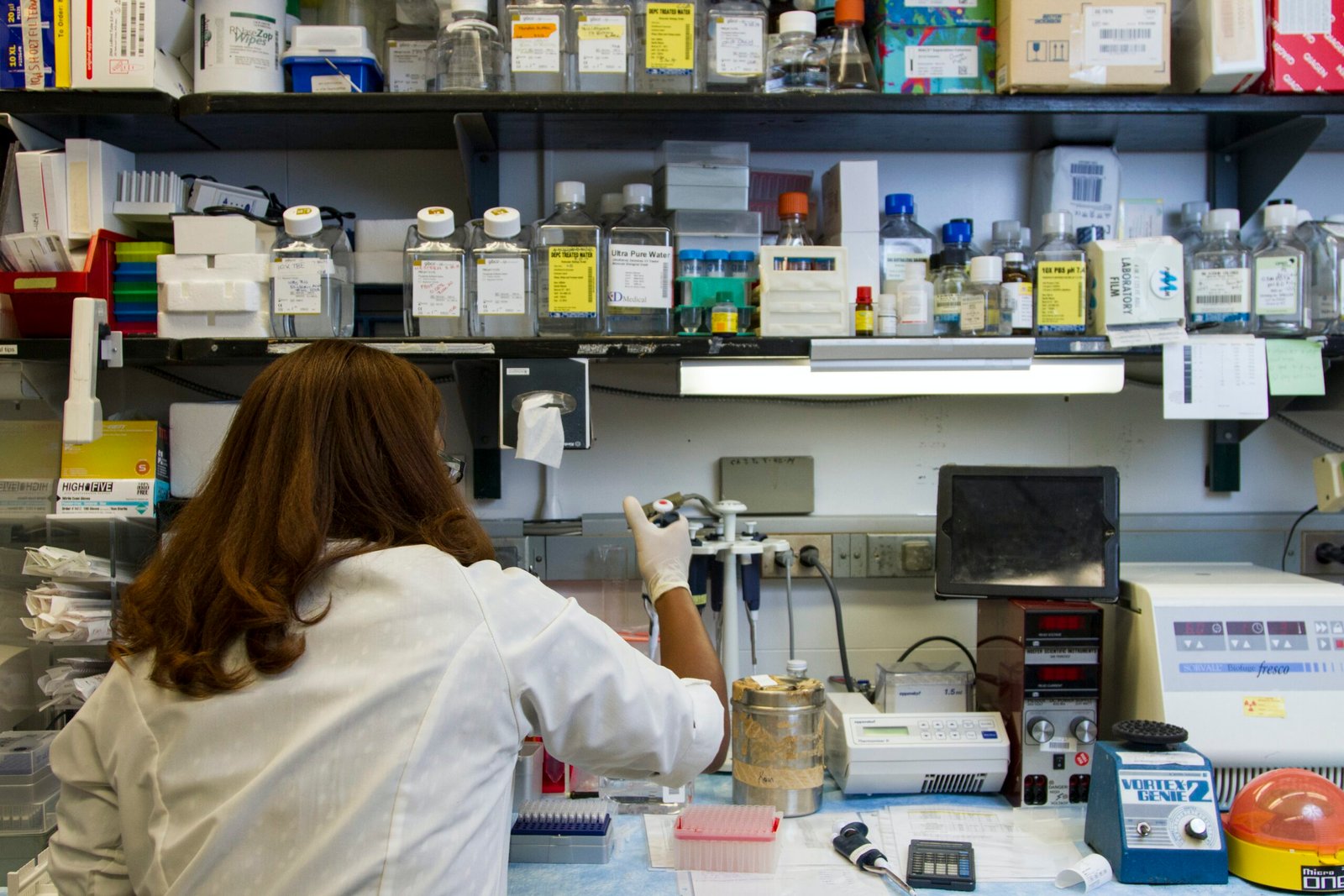Have you ever wondered if gout, a painful form of arthritis, can be passed down through your genes? Gout is a condition characterized by sudden and severe joint pain, often affecting the big toe. While it may seem like a random occurrence, many individuals are curious to know if there is a hereditary component to this debilitating condition. In this article, we will explore the question of whether gout is hereditary, shedding light on the potential genetic factors that may contribute to its development. So, let's dive into the world of genetics and uncover the truth behind gout's familial ties.
Genetics and Gout
Gout is a complex disease that can be influenced by genetic factors. Understanding the role of genetics in gout development is crucial for proper management and prevention of this condition. In this article, we will explore the relationship between genetics and gout, the impact of family history on gout risk, and the possibilities for genetic testing in the future.
Overview of genetics and hereditary conditions
Genetics plays a significant role in the development of various health conditions, including gout. Hereditary conditions are those that are passed down from parents to their children through genes. Genes are the building blocks of our DNA, and they contain the instructions for the development and functioning of our bodies. Certain variations or mutations in genes can increase the likelihood of developing specific conditions, such as gout.
How gout is influenced by genetics
Gout, a form of arthritis, is influenced by both genetic and environmental factors. While lifestyle choices and dietary habits can contribute to gout development, several genes have been identified that play a role in its occurrence. Genetic factors can influence the levels of uric acid in the body, which is a key component in the development of gout. Elevated levels of uric acid can lead to the formation of crystals in the joints, resulting in pain, swelling, and inflammation commonly associated with gout.
Genetic factors that contribute to gout development
Several genetic factors have been identified that contribute to the development of gout. One such factor is the SLC2A9 gene, which is responsible for the regulation of uric acid levels in the body. Variations in this gene can lead to increased levels of uric acid and a higher risk of developing gout. Another gene, ABCG2, has also been associated with gout development. ABCG2 is involved in the transport of uric acid out of cells, and certain genetic variations in this gene can impair its function, leading to higher levels of uric acid.
Role of family history in gout
A family history of gout can be a strong indicator of an individual's risk for developing the condition. If one or more close family members, such as parents or siblings, have gout, the likelihood of developing gout increases. This suggests a genetic component in gout development. The presence of gout in the family can indicate shared genetic variations that contribute to uric acid metabolism and the overall susceptibility to gout.
Understanding Gout
Definition of gout
Gout is a form of arthritis characterized by sudden and severe joint pain, tenderness, redness, and swelling. It typically affects the joint at the base of the big toe, although other joints such as the ankles, knees, wrists, and fingers can also be affected. Gout occurs when there is an accumulation of uric acid in the body, leading to the formation of urate crystals in the joints.
Causes of gout
Gout is primarily caused by an overproduction or underexcretion of uric acid. Uric acid is a waste product that is produced when the body breaks down substances called purines, which are found in certain foods and occur naturally in the body. When there is an excess of uric acid or insufficient excretion, it can accumulate and lead to the formation of urate crystals.
Risk factors for developing gout
While genetics play a significant role in gout development, several external factors also increase the risk of developing the condition. These risk factors include a diet rich in purine-containing foods, such as organ meats, seafood, and sugary beverages. Obesity, high blood pressure, diabetes, and kidney disease are additional risk factors associated with gout. Certain medications, such as diuretics or aspirin, can also contribute to the development of gout.
Symptoms and diagnosis of gout
The hallmark symptom of gout is the sudden onset of intense joint pain. The affected joint becomes swollen, tender, and red. The pain is often described as excruciating and is accompanied by a sense of heat. The symptoms of gout can mimic those of other conditions, making diagnosis challenging. A healthcare professional may perform a physical examination, order blood tests to measure uric acid levels, and may also perform joint fluid analysis to confirm the presence of urate crystals and aid in the diagnosis of gout.

Genetic Factors in Gout
Predisposition to gout
Genetic predisposition plays a crucial role in an individual's susceptibility to gout. Variations in certain genes can increase the risk of developing gout, while others may provide protection against the condition. The presence of these genetic variations can alter the way our bodies process and eliminate uric acid, making some individuals more prone to gout development than others.
Study on heritability of gout
Family and twin studies have provided valuable insights into the heritability of gout. Research suggests that there is a significant genetic component to gout development, with heritability estimates ranging from 40% to 70%. Heritability refers to the proportion of variation in a trait that can be attributed to genetic factors. These studies indicate that genetic factors contribute substantially to an individual's risk of developing gout compared to environmental factors.
Link between specific genes and gout
Studies have identified several genes that have a strong association with gout. As mentioned earlier, variations in the SLC2A9 gene have been linked to increased uric acid levels and an elevated risk of gout. The ABCG2 gene, involved in uric acid transport, has also shown a strong association with gout. Other genes, such as SLC17A1 and SLC22A11, have been implicated in gout development, indicating the complexity of the genetic factors involved.
Role of genetic variations in uric acid metabolism
Genetic variations in genes related to uric acid metabolism can influence the levels of uric acid in the body and, consequently, the risk of gout. These variations can impact the production, excretion, and transport of uric acid. For example, some genetic variations may increase the production of uric acid, while others may impair the elimination of uric acid from the body.
Influence of HLA-B gene on gout development
The HLA-B gene, part of the human leukocyte antigen (HLA) system, has been implicated in the development of gout. The HLA-B gene plays a crucial role in the immune system, helping to distinguish between self and non-self cells. Variations in this gene have been linked to an increased risk of gout, possibly due to the gene's involvement in the immune response to urate crystals in the joints.
Family History and Gout
Role of family history in gout
Family history is a significant risk factor for gout. Having close relatives with gout, such as parents or siblings, increases an individual's likelihood of developing the condition. Shared genetic variations within families can account for the familial clustering of gout cases. Understanding the influence of family history on gout can provide valuable information for healthcare providers to assess an individual's risk and implement preventive measures.
Family studies and gout heritability
Family studies have demonstrated the hereditary nature of gout by showing that the risk of developing the condition is higher among individuals with affected family members. These studies have also highlighted the importance of genetic factors compared to shared environmental factors in gout development. The higher the number of family members affected by gout, the greater the risk for individuals within that family.
Risk of gout based on family history
The risk of developing gout increases with a positive family history of the condition. Individuals with a parent or sibling affected by gout have a higher risk compared to those without a family history. The risk further increases if both parents have gout or if multiple siblings are affected. Awareness of family history can help individuals understand their own risk and take proactive steps to prevent or manage gout.
Impact of shared environment and genetics in gout
While genetics play a significant role in gout development, it is essential to consider the impact of shared environment alongside genetic factors. Factors such as lifestyle choices, dietary habits, and exposure to certain environmental triggers can influence an individual's risk of developing gout, even in the presence of genetic predisposition. The interplay between genetics and the environment is essential to fully understand the complexities of gout development.

Patterns of Gout Inheritance
Types of genetic inheritance
The inheritance of gout does not follow a straightforward pattern, as it can be influenced by multiple genes and environmental factors. There are three main types of genetic inheritance: dominant, recessive, and polygenic and multifactorial. Understanding these patterns can provide insights into how gout may be passed on from one generation to the next.
Dominant inheritance and gout
Dominant inheritance occurs when a person inherits a single copy of a gene variant from one parent. In the context of gout, dominant inheritance can lead to an increased risk of developing the condition if the affected gene is associated with gout susceptibility. The presence of a dominant gene can override the presence of a normal copy of the gene and increase the likelihood of gout development.
Recessive inheritance and gout
Recessive inheritance occurs when a person needs to inherit two copies of a gene variant, one from each parent, to develop a condition. In the case of gout, recessive inheritance is less common. However, certain rare genetic disorders associated with gout can follow a recessive inheritance pattern.
Polygenic and multifactorial inheritance in gout
Polygenic and multifactorial inheritance patterns involve the influence of multiple genes and environmental factors on the development of a condition. Gout is primarily considered a polygenic and multifactorial disease, as numerous genes contribute to its development, along with lifestyle choices and environmental triggers. The interplay between multiple genetic and environmental factors can make the prediction of gout risk more complex.
Genetic Testing for Gout
Overview of genetic testing
Genetic testing involves analyzing a person's DNA to identify specific genetic variations associated with a particular condition, such as gout. The tests can detect gene variants that increase the risk of developing gout or provide valuable information about an individual's response to certain medications used in gout treatment. Genetic testing for gout is still relatively new and not widely available, but it holds promise for better understanding the genetic factors involved in gout development.
Benefits and limitations of genetic testing
Genetic testing for gout can provide several benefits. It can help individuals understand their risk of developing gout based on their genetic profile, allowing for early intervention and preventive measures. It can also guide healthcare providers in tailoring treatment plans based on an individual's genetic makeup. However, it is essential to recognize the limitations of current genetic testing technologies, as not all genetic factors associated with gout have been identified, and the interpretation of test results may require additional research and validation.
Genetic markers and variants associated with gout
As research on the genetic basis of gout advances, several genetic markers and variants have been identified that are associated with an increased risk of gout. Variations in genes such as SLC2A9, ABCG2, SLC17A1, SLC22A11, and the HLA-B gene have shown strong associations with gout development. Genetic testing can help identify these variants and markers and provide individuals with information about their genetic predisposition to gout.
Implications of genetic test results for gout patients
Results from genetic testing can have important implications for gout patients. Individuals with a high risk based on genetic markers may benefit from targeted preventive measures, such as lifestyle modifications and early pharmacological interventions. Additionally, genetic test results can guide healthcare providers in choosing the most appropriate medications for gout treatment based on an individual's genetic profile, optimizing the management of the condition.

Environmental Factors and Gout
Interaction between genetics and environment in gout
Gout development is influenced by a complex interplay between genetic factors and environmental triggers. While genetic variations can predispose individuals to gout, environmental factors play a crucial role in triggering gout attacks. Certain lifestyle choices, such as a diet high in purine-containing foods or excessive alcohol consumption, can increase the production of uric acid or impede its excretion, contributing to gout development.
Dietary factors and gout
Dietary factors can significantly impact gout development and symptom severity. Foods high in purines, such as organ meats, seafood, and some vegetables like mushrooms and asparagus, can increase the levels of uric acid in the body. Additionally, sugary drinks and excessive alcohol consumption, particularly beer and spirits, have been associated with an increased risk of gout. Adopting a healthy, balanced diet low in purines and staying well-hydrated can help reduce the risk and frequency of gout attacks.
Effects of lifestyle choices on gout risk
Lifestyle choices play a crucial role in the risk of developing gout. Obesity, for example, is strongly associated with gout, as excess body weight can lead to increased production of uric acid and impaired excretion. Regular exercise and weight management can help prevent gout by reducing uric acid levels in the body. Additionally, limiting alcohol consumption, particularly beer and spirits, and avoiding sugary drinks can help lower the risk of gout.
Environmental triggers for gout attacks
Gout attacks can be triggered by certain environmental factors. Changes in temperature, particularly colder temperatures, can increase the risk of gout flare-ups. Dehydration and infection can also precipitate gout attacks. It is essential for individuals with gout to be aware of these environmental triggers and take steps to minimize their exposure to them, such as staying hydrated and avoiding extreme temperatures.
Prevention and Management
Lifestyle modifications for preventing gout
Making certain lifestyle modifications can significantly reduce the risk of developing gout or the frequency of gout attacks. Adopting a healthy, balanced diet low in purines, maintaining a healthy weight, exercising regularly, and staying well-hydrated are all important for gout prevention. Limiting alcohol consumption, particularly beer and spirits, and avoiding sugary drinks can also help lower the risk of gout.
Role of medication in gout management
Medication plays a crucial role in the management of gout, especially during acute attacks or to prevent future attacks. Nonsteroidal anti-inflammatory drugs (NSAIDs), colchicine, and corticosteroids are commonly used to manage the pain and inflammation associated with gout attacks. Medications such as xanthine oxidase inhibitors and uricosuric agents can also be prescribed to reduce uric acid levels and prevent the formation of urate crystals.
Genetic considerations in gout treatment
Genetic factors can influence an individual's response to certain medications used in the treatment of gout. For example, some genetic variants may impact the effectiveness or potential side effects of certain medications. Genetic testing can provide valuable information about an individual's genetic makeup and guide healthcare providers in choosing the most appropriate medications for gout treatment, optimizing their effectiveness.
Personalized approaches to gout prevention and management
The field of personalized medicine holds promise for the prevention and management of gout. By incorporating an individual's genetic information, along with lifestyle factors and environmental triggers, healthcare providers can develop personalized approaches to gout prevention and management. Tailoring treatment plans to an individual's specific genetic profile and addressing modifiable risk factors can improve outcomes and enhance the overall management of gout.

Future Research and Implications
Current gaps in knowledge about gout heredity
While significant progress has been made in understanding the genetic basis of gout, there are still gaps in our knowledge. The exact mechanisms by which certain genes contribute to gout development, as well as the interplay between genetics and the environment, require further investigation. Additionally, the identification of additional genetic variants associated with gout could enhance our understanding of the condition and guide future research and treatment development.
Advancements in genetic research on gout
Advancements in genetic research have paved the way for a better understanding of the genetic factors involved in gout. Techniques such as genome-wide association studies (GWAS) have helped identify specific genes and variants associated with gout susceptibility. With continued research, we can expect further advancements in our understanding of the genetic basis of gout, leading to improved diagnostic tools and targeted therapies.
Potential for targeted therapies based on genetic factors
As our understanding of the genetic basis of gout deepens, the potential for targeted therapies based on an individual's genetic profile becomes evident. By identifying specific genetic variations associated with gout, researchers can develop personalized treatment strategies tailored to an individual's genetic makeup. This precision medicine approach holds promise for improving treatment effectiveness and reducing side effects in gout management.
Importance of further studies on gout genetics
Further studies on gout genetics are crucial for advancing our understanding of the condition and developing innovative treatments. By elucidating the genetic factors involved in gout development, researchers can identify new therapeutic targets and develop more effective interventions. In addition to genetic factors, future research should also focus on unraveling the complexities of gene-environment interactions to enhance our ability to prevent, diagnose, and manage gout effectively.
Conclusion
In conclusion, genetics plays a significant role in the development of gout. Genetic factors can influence the levels of uric acid in the body, contributing to the formation of urate crystals and the subsequent onset of gout. Family history can provide valuable insights into an individual's risk of developing gout, as shared genetic variations within families can increase susceptibility. Genetic testing holds promise for better understanding an individual's genetic predisposition to gout and guiding personalized treatment approaches. By incorporating genetic information into gout management, healthcare providers can optimize prevention strategies and tailor treatment plans based on an individual's specific needs. With ongoing research and advancements in the field of gout genetics, we can expect improved diagnostic tools, targeted therapies, and personalized approaches for the prevention and management of this complex condition. If you or your family members have a history of gout, consider discussing the possibility of genetic testing and the implications it may have for your management and treatment with a healthcare professional. Genetic counseling can also provide valuable guidance and support in understanding the hereditary aspect of gout and its implications for you and your family.

